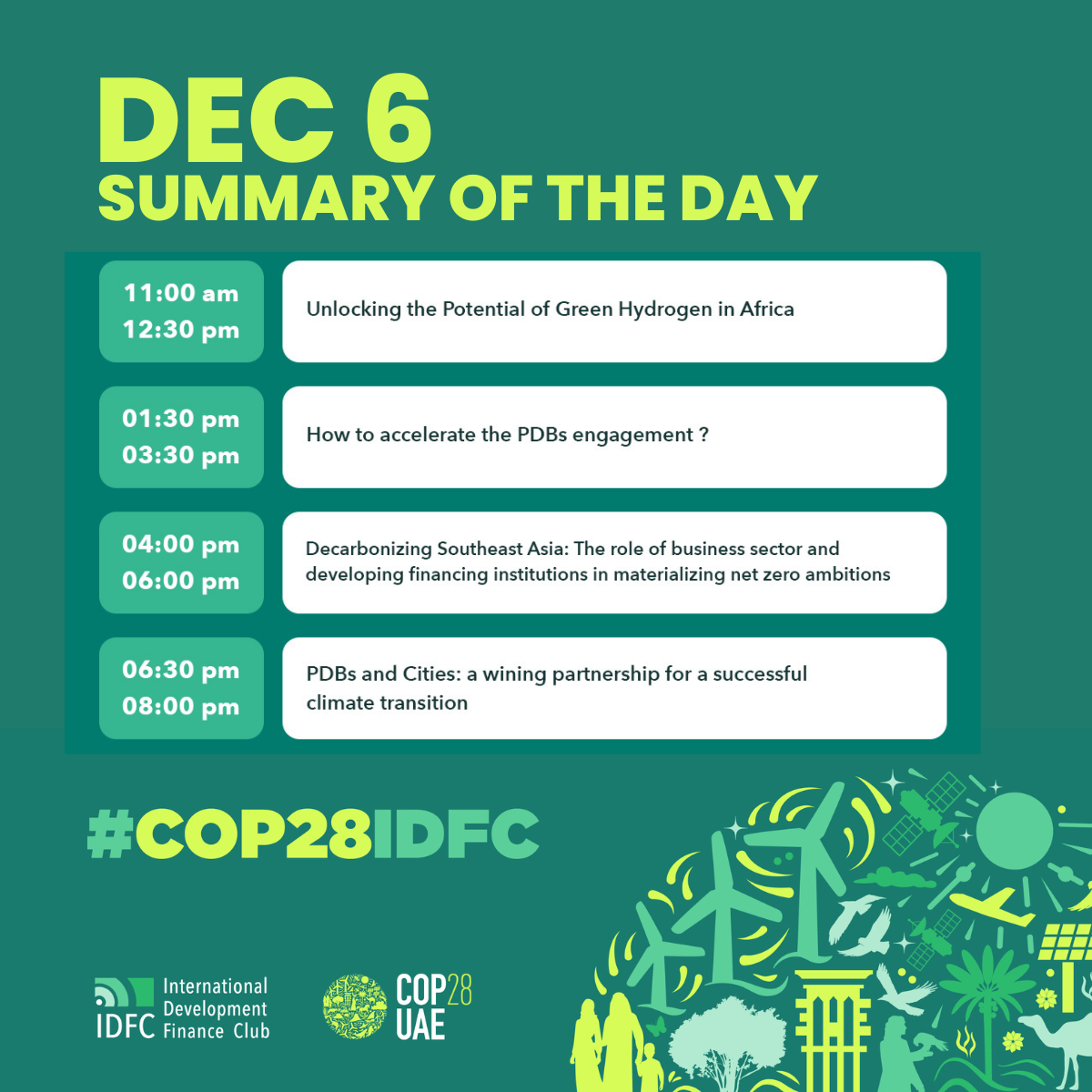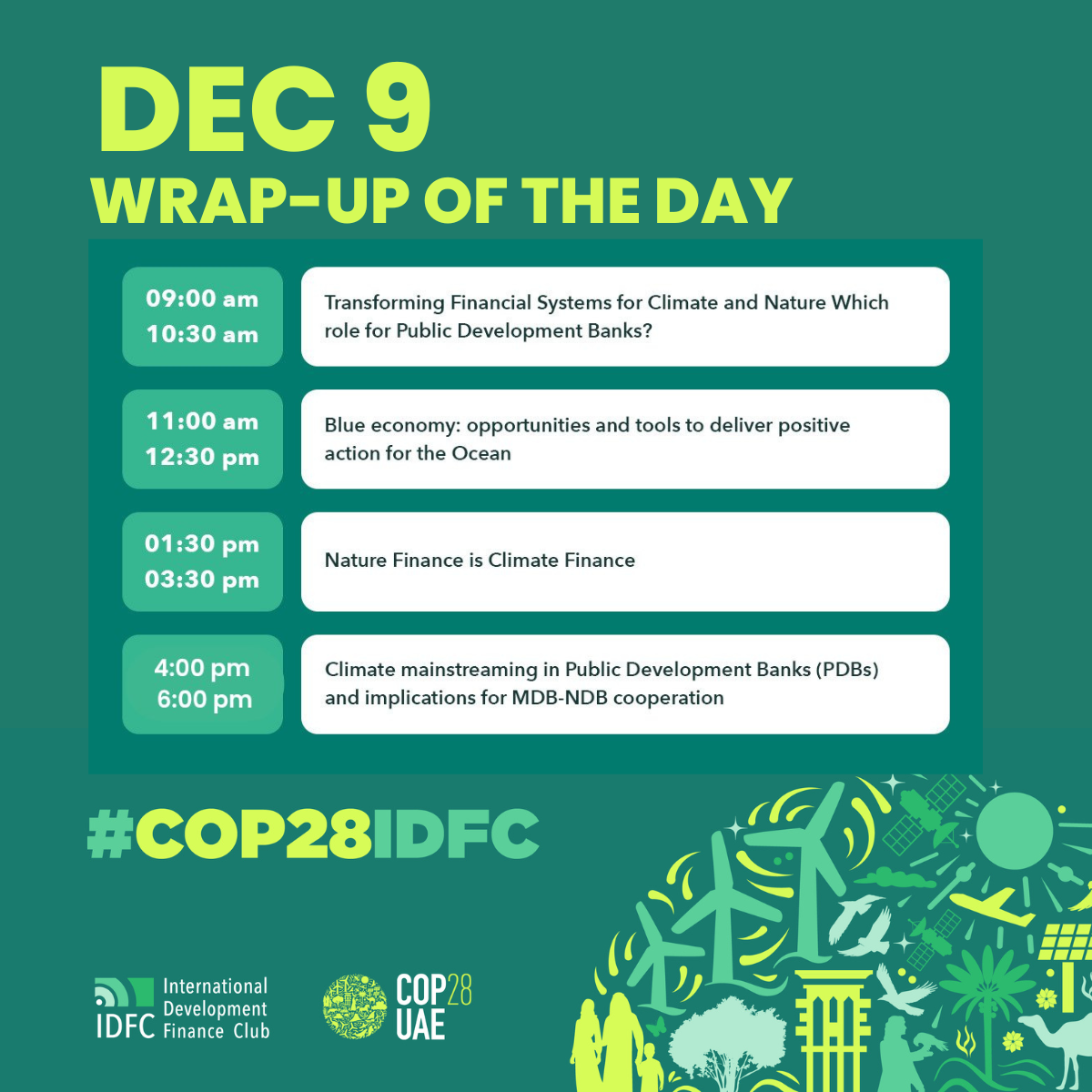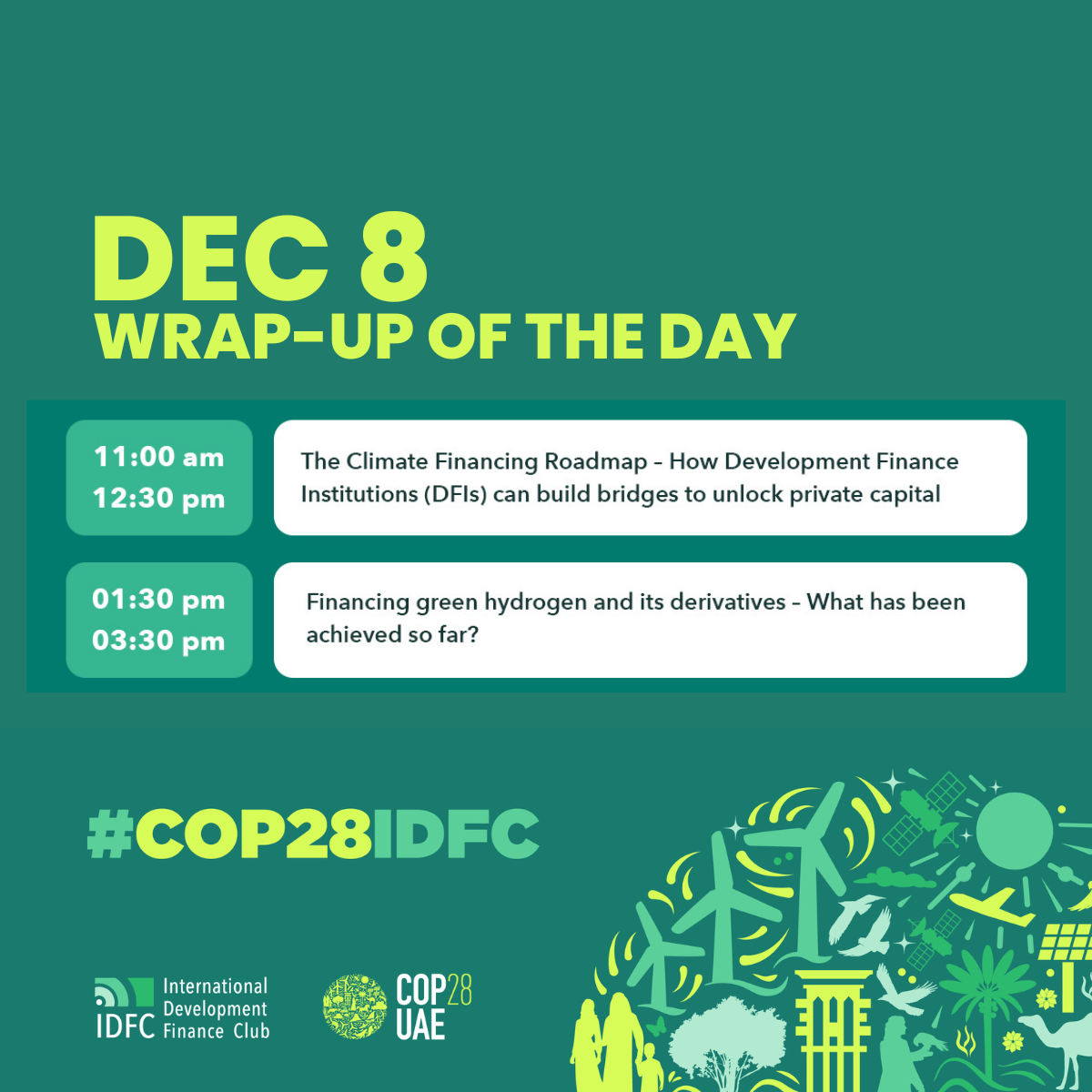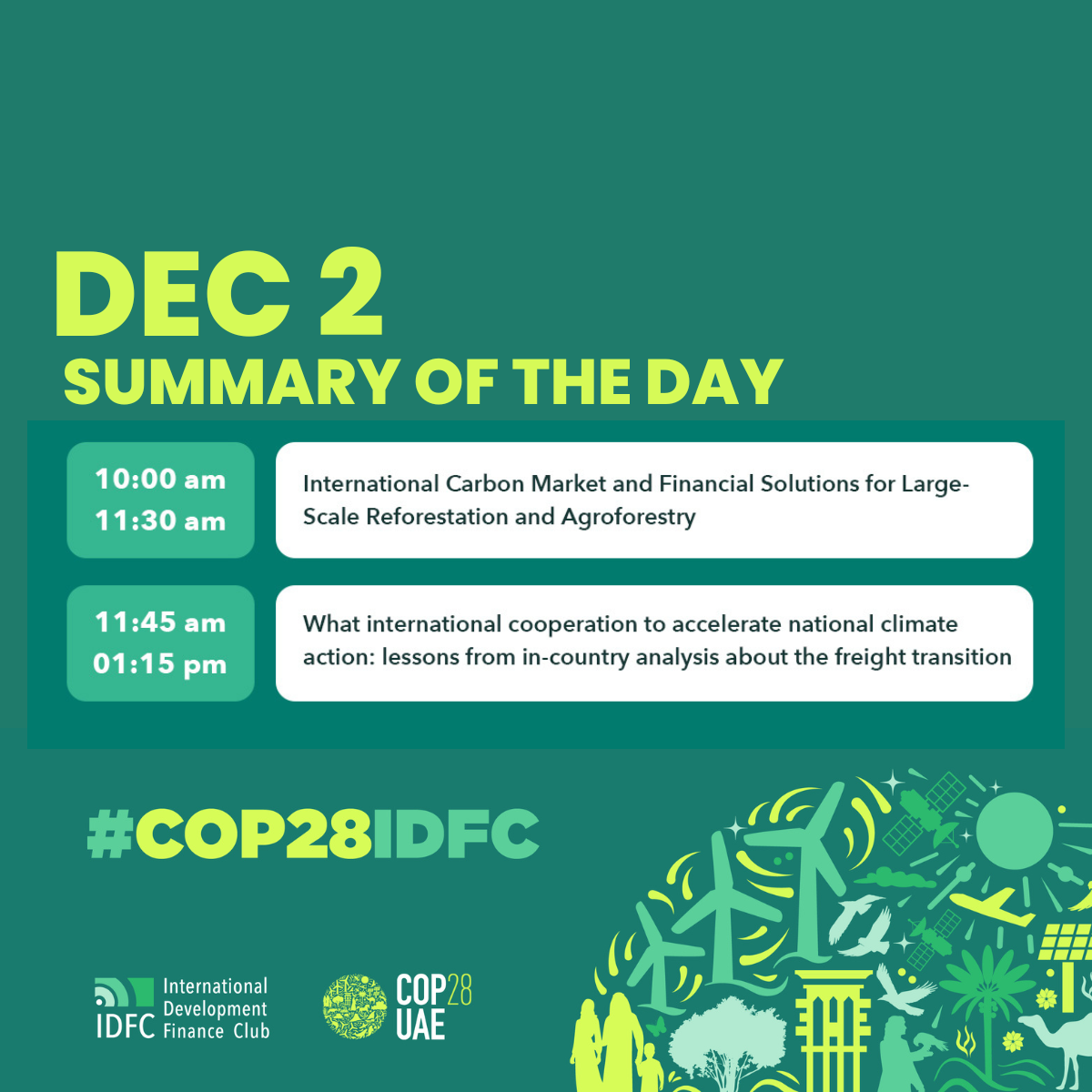
COP28IDFC DEC2 – Wrap up
2 December 2023The second day of the #COP28IDFC pavilion is now closed, on this occasion the Club thanks all the panelists who contributed to the 2 events.
Today we talk about Carbon Market in Brazil and Energy.
Below you can find the key takeaways and replay:
International Carbon Market and Financial Solutions for Large- Scale Reforestation and Agroforestry
The panel aims to discuss how innovative finance instruments, considering the international trade of carbon credits can boost the potential of developing countries, such as Brazil and South Africa, for reforestation and agroforestry projects in degraded areas.
Article 6 of the Paris Agreement can be a lever to scale up the recovery and preservation of biomes in the Global South and help meet the planet’s emission reduction targets. In this context, national development banks can bring solutions to unlock this market with integrity.
This session was moderated by Claudia Prates, Head of Climate Transition, BNDES
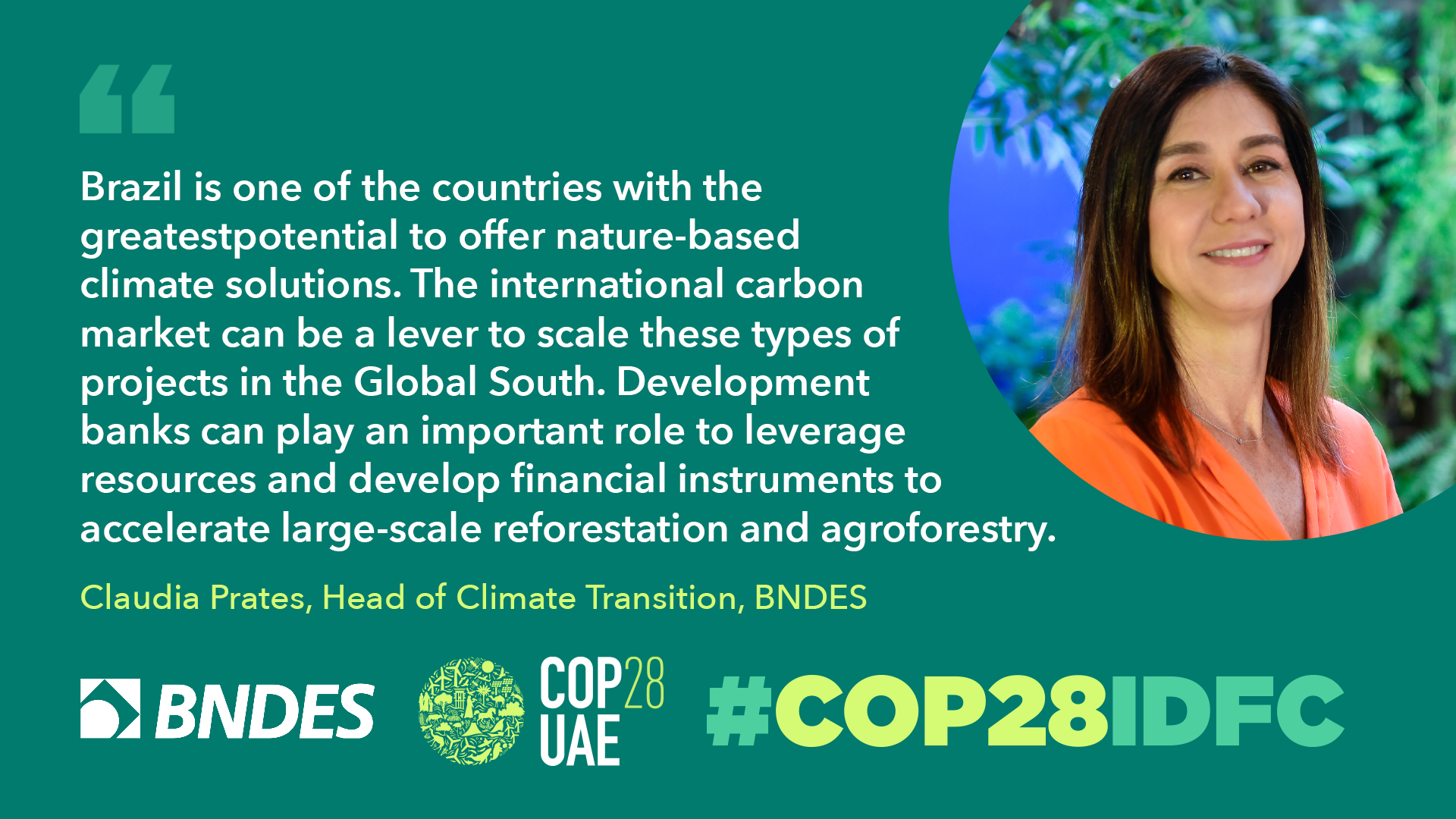
Mariana Barbosa, Re.Green Institutional Relations Managing Director
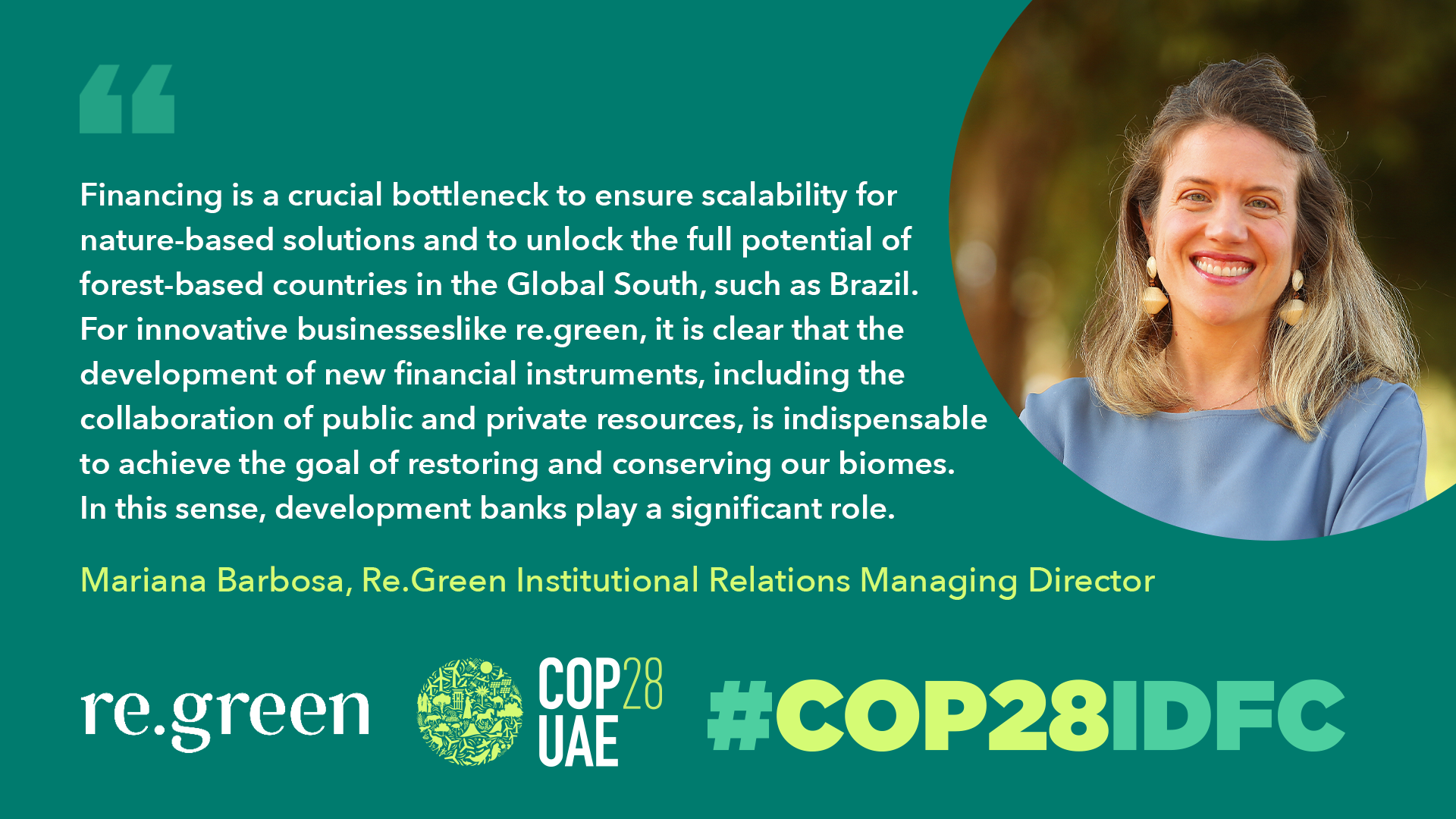
Mariana, introduced a number of biodiversity protection techniques implemented in Brazil over the past few years to help farmers and other profesionals preserve the lands. All adapted to different locations and farms because the environment is diverse around the country.
All this while working with local communities to understand how they work, what they need, their economic return, but also to the measur how much carbon restore.
Mariana also stressed the importance of knowing why the carbon markets are going to be used, and how best to optimize them so that they have a real impact on day-to-day operations and projects.
“We need to think more creatively with financial instruments to develop the chain”.
It’s also important to bear in mind that projects often last a very long time, so we need to adapt to the various changes we’re faced with. We need to think not just in terms of the current moment, but with a view to the next 50 years (which is sometimes how long the project lasts).
Luan Santos, Representative of the Latin American and Caribbean Carbon Market Initiative
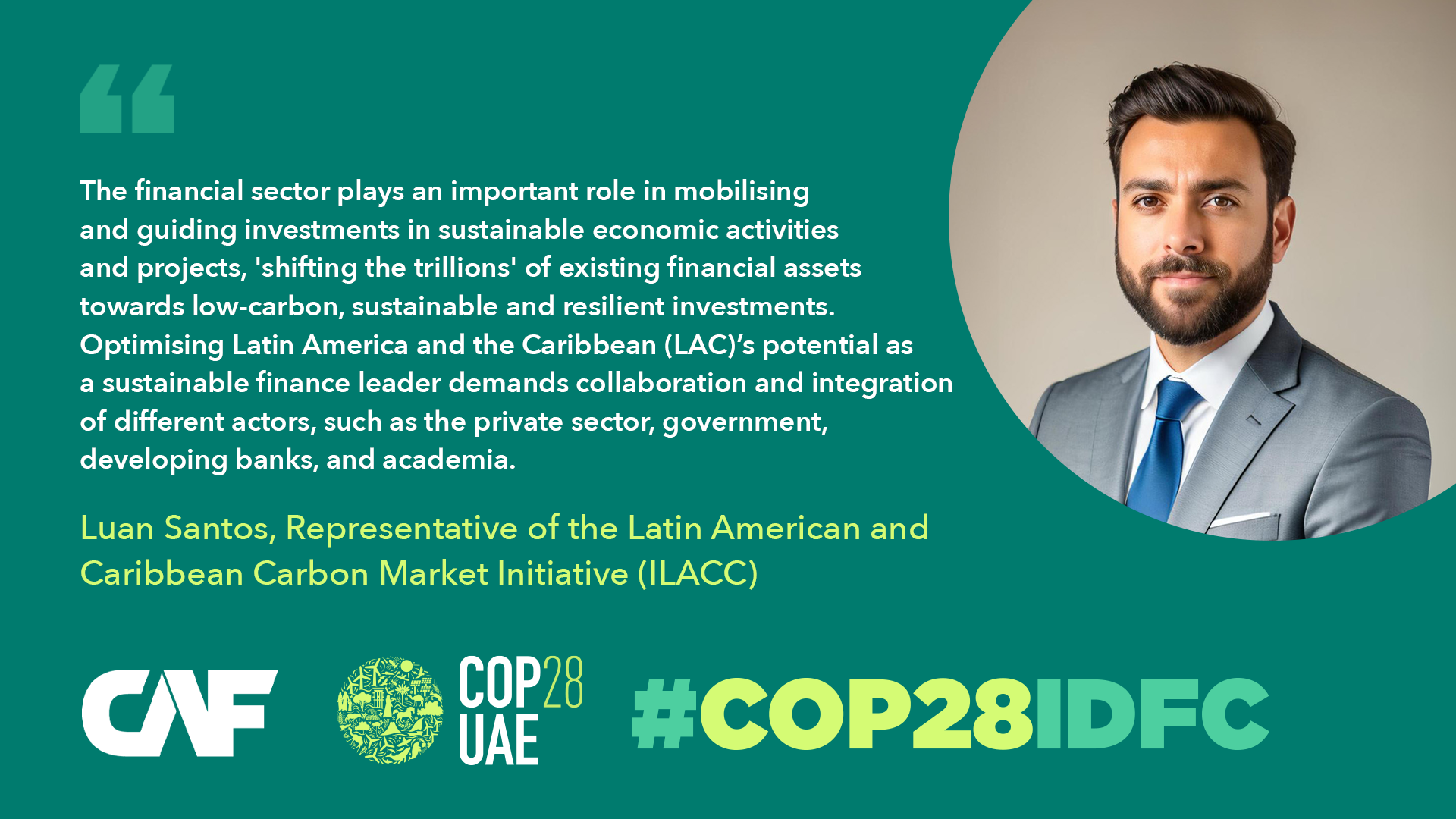
Luis particularly insisted on the fact that we need to mix different sectors to make decisions and understand the issues, different experts in various fields need to communicate together to adapt the solution to each stakeholder.
Mariana completed his point by “We also need to have a more complete vision of the tools available. There are a lot of people working on very interesting tools, but it’s still complicated to find them, get access to them and implement them”.
Henrique Ceotto, Representative of the Brazilian Voluntary Carbon Market Initiative
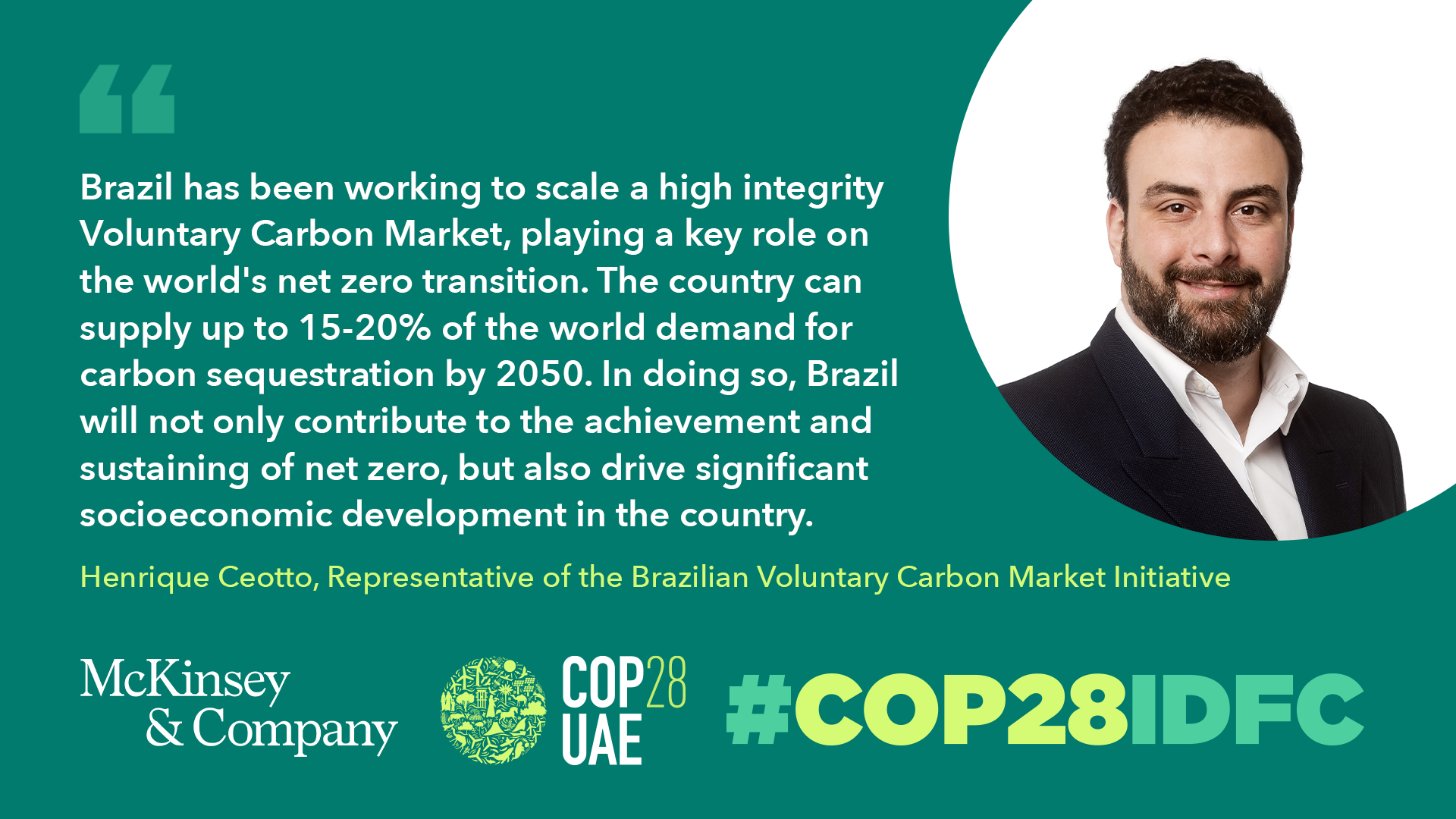
What international cooperation to accelerate national climate action: lessons from in-country analysis about the freight transition
A discussion on international cooperation, with a sectoral perspective about the freight transport sector & national perspectives from African leaders, gathering the following speakers:
- Chuks Okereke, Professor at AE FUNAI, Nigeria
- Samba Fall, Senior Manager at ENDA, Senegal
- Friedel Sehlleier, Senior Advisor, Kuehne Foundation
- Henri Waisman, Director of the DDP initiative, IDDRI
- Yann Briand, Senior Researcher, DDP initiave, IDDRI
Key outcomes of this session:
- One of the critical conditions to enable future country-owned ambitious decisions for climate action is knowledge capacity creation and development, in countries and at the african regional level. International cooperation should support it.
- Freight and logistics decarbonisation are often overlooked in international and national strategies, while representing 40% of global transport emissions.
- Key priority areas are related to national industrial development and reinforcement of regional trade and local supply chains, developing rail freight and limiting the trade of old dirty trucks.
- The transition has often been left in the hands of the private sector. While their involvement is necessary, structural and systemic shift require public policymakers to set the right level playing field and to trigger the transition.
On this occasion DDP initiative published its Annual Report.
